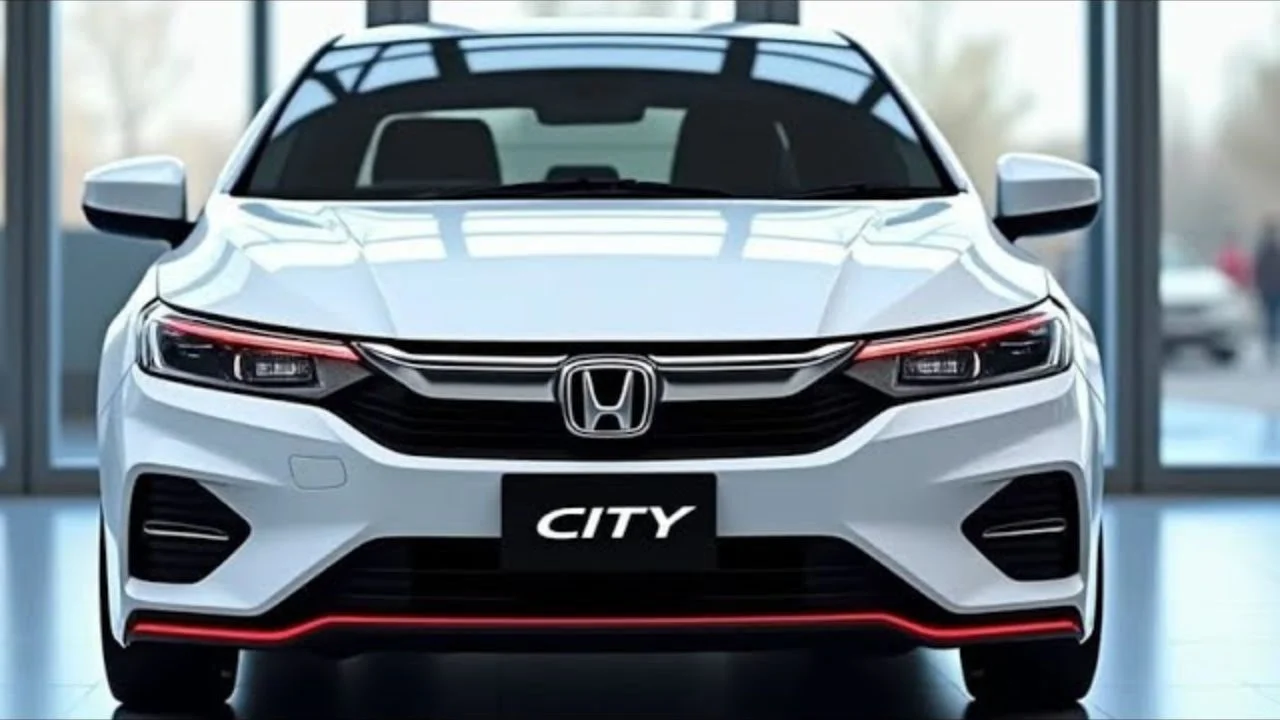Honda Cars India has quietly slashed the price of its exclusive hybrid sedan, the City e:HEV, by nearly ₹1 lakh. Now available only in the top-spec ZX trim, the City Hybrid’s ex-showroom price has dropped from ₹20.85 lakh to ₹19.90 lakh, or ₹19.89 990 to be precise—a 4.6% reduction that places it well within reach of hybrid-curious buyers .
🔥 Price Drop: What Changed?
The decision to discontinue the mid-spec V variant left the more premium ZX trim as the sole option. With the ₹95,000 discount, the City Hybrid returns close to its original 2022 launch price of ₹19.5 lakh . This “premium-only” approach simplifies the lineup, yet the lower price tag broadens its appeal.
⚙️ Powertrain & Mileage: Hybrid That Actually Delivers
The City e:HEV continues to stand alone as the only strong hybrid sedan in its segment. Under the hood is the proven 1.5-litre engine operating on the Atkinson cycle, paired with two electric motors and an e-CVT gearbox. This setup delivers a combined output of approximately 124–126 PS and 253 Nm of torque.
Now, with the revised price, it’s not only more affordable—it’s also more compelling. The official ARAI fuel economy stands at 27.26 kmpl, and the City demonstrates real prowess in daily driving .
🛣️ Real-World Efficiency: Owner Feedback
Many owners report mixed mileage figures, depending on driving style:
“I have recently bought New Honda city Hybrid… I am getting 18 to 20 on highway and in city also. I saw some people able to get mileage to more than 25 kmpl.”
“30k in one year… Overall I think it has averaged 20 kmpl… Pros: Great stability in highway, smooth suspension… Cons: Ground clearance… left side camera quality is poor.”
It’s clear: drivers committed to a smooth, steady pace on highways can approach the 25–27 kmpl mark, while aggressive city use can drop it into the high teens. The consensus? Hydride aids highway efficiency but depends heavily on driving behavior.
🎯 Segment Comparison: Why Hybrid Makes More Sense Now
At its new ₹19.9 lakh price point, the Honda City Hybrid directly competes with petrol-only rivals:
-
Hyundai Verna: ₹11.07–17.58 lakh
-
Skoda Slavia: ₹10.49–18.33 lakh
-
VW Virtus: ₹11.56–19.40 lakh
-
Standard Honda City ZX: ₹12.38–16.72 lakh
While not necessarily the absolute cheapest, the City e:HEV now offers enhanced fuel savings, hybrid smoothness, and a comprehensive ADAS suite, justifying its modest premium.
🌟 Feature List: Top-Spec Perks Packed In
City Hybrid buyers in the ZX variant get access to an impressive tech and safety stack:
-
Honda Sensing ADAS (adaptive cruise control, lane-keeping, collision mitigation, auto high-beam)
-
LED lights with lane-watch camera, 16-inch dual-tone alloys, and sunroof
-
8-inch touchscreen with wireless Apple CarPlay/Android Auto, wireless charger, and 8-speaker audio
-
Six airbags, ABS with EBD, ESC, TPMS, hill-start assist, EPB, ISOFIX mounts
This spec list is rare in its class, and now comes at a more accessible cost.
🧾 The Catch: What to Consider Before Buying
-
Hybrid Premium: Even after the discount, the e:HEV ZX costs about ₹3–4 lakh more than the top-end petrol City, which may not be feasible for all budgets.
-
Mileage Variability: Real-world numbers hinge heavily on driving habits—aggressive use can push mileage into the teens.
-
Ownership Costs: Hybrid servicing and potential battery maintenance may be costlier than petrol counterparts, and resale issues have been flagged in the past .
✅ Final Verdict: Is This the Right Time to Buy?
With the ₹95,000 price cut, the City e:HEV now strikes an ideal balance—it’s the only sedan in India combining strong hybrid efficiency, class-leading safety technology, and Honda’s renowned reliability, all under ₹20 lakh ex-showroom.
It’s particularly appealing for:
-
Enthusiasts of long-distance, fuel-efficient commuting
-
Buyers craving advanced safety features
-
Customers supportive of government incentives for hybrid vehicles
That said, it remains best suited for drivers who value hybrid gains and can live with the initial premium. For budget-focused buyers, the standard petrol City ZX or even diesel alternatives may still be more practical investments.
